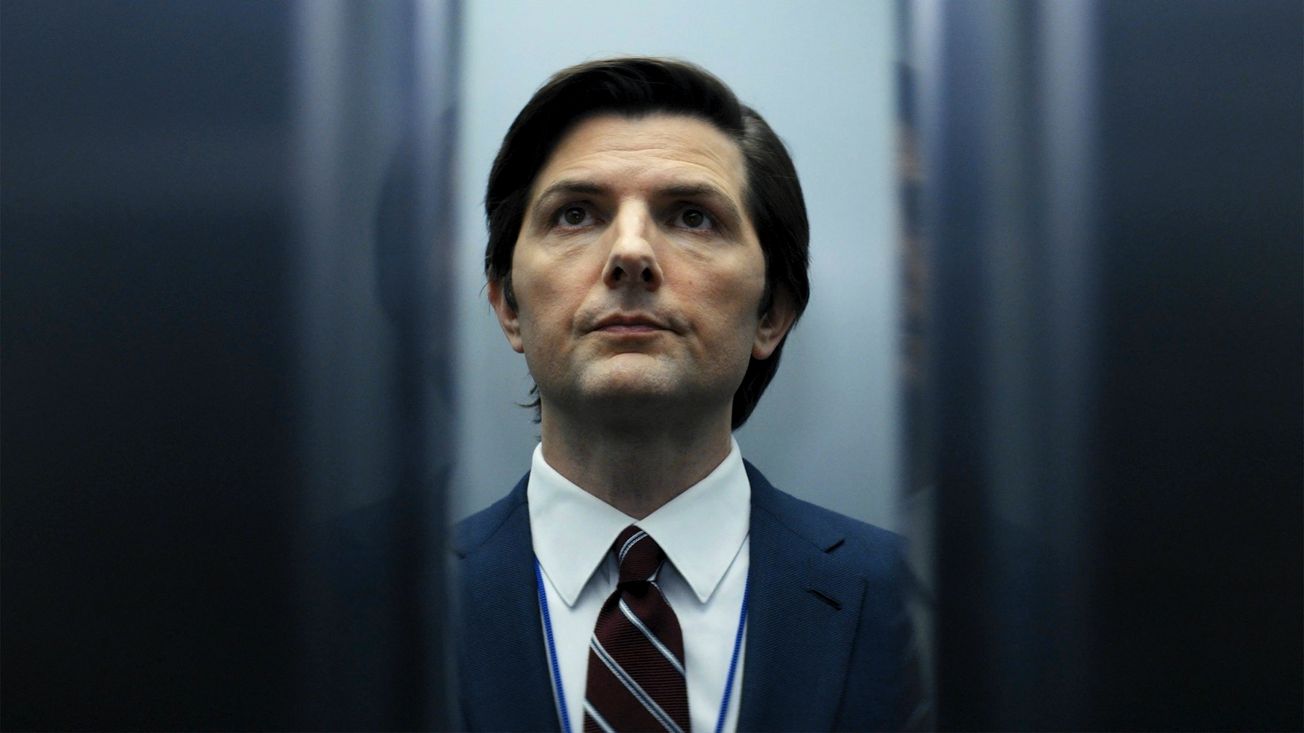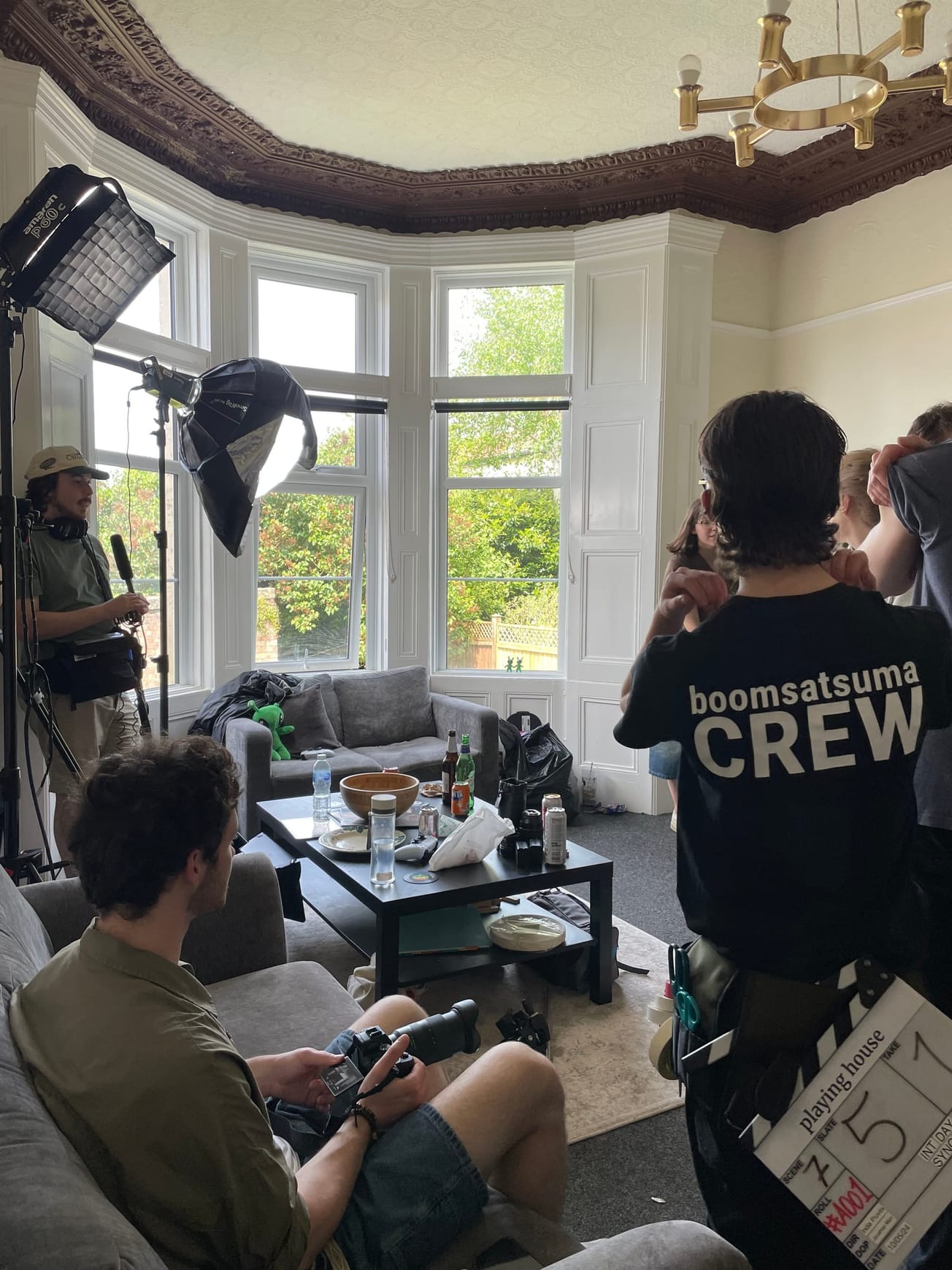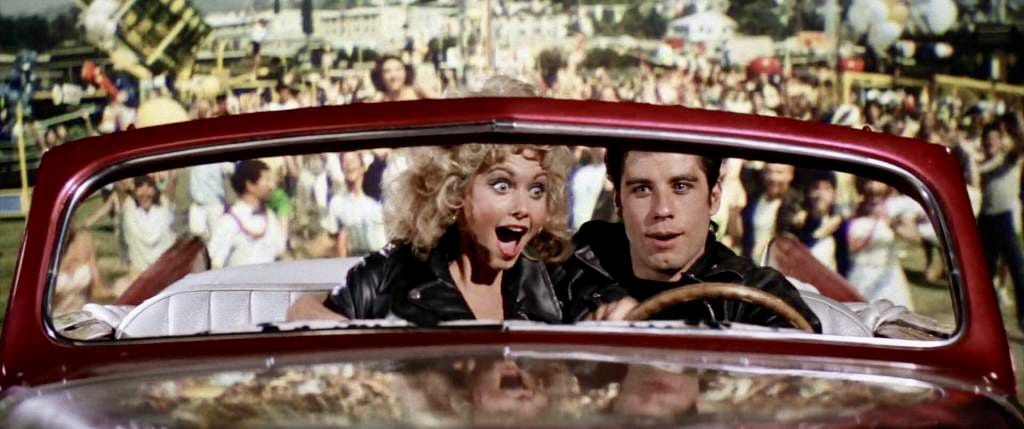Emily Lidgard, Second Year, English Literature
During a decade of corrupt businesses and fat cat conglomerates, creating a workplace dystopia show at the moment seems like a challenge. Amidst the corporatism and monopolisation, corruption, excess and powerless workers in dominating companies, there leaves little room to exaggerate what already feels to many of us like a grim depiction of a nightmarish future. With Amazon employees stuck in fourteen-hour contracts with no bathroom breaks and Uber drivers trapped in insecure zero-hour contracts, it’s no wonder so many writers are choosing nefarious businesses as subjects to satirise.
Apple TV+’s new series Severance proposes a simple solution to our corporate unhappiness and ethical qualms: imagine working a job that pays you heftily to do work you don’t even remember undergoing. Ben Stiller’s new TV show follows Mark (Adam Scott), a man who has taken up this tempting invitation as he undertakes a procedure called ‘severance’: an operation that surgically divides his memories into his home life and work life.
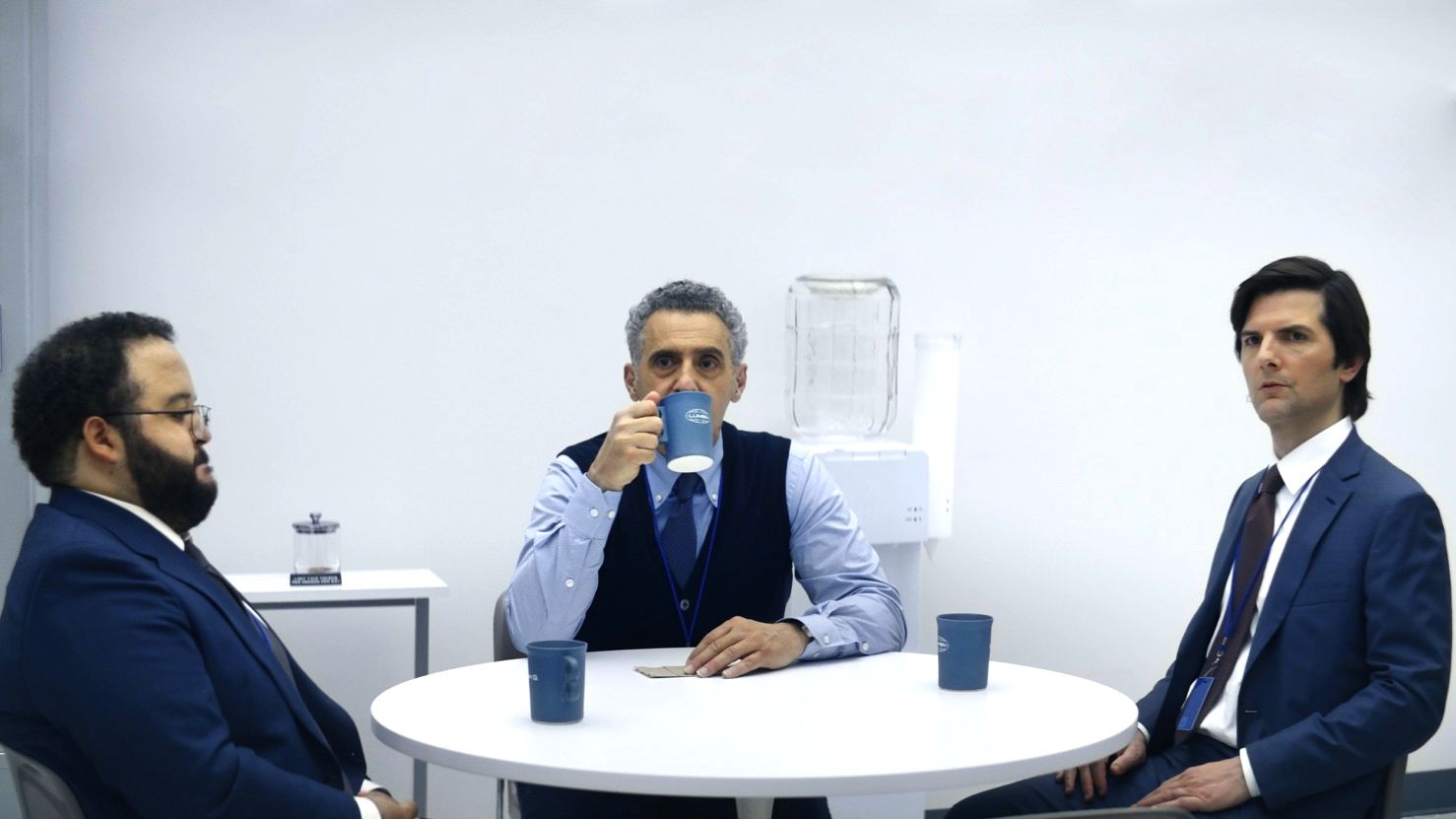
As seductive as this programme appears, this sensation soon disintegrates as the disturbing consequences reveal themselves through new recruit Helly’s (Britt Lower) eyes. While desirable to the “outies”, the version of themselves who enjoys the world outside of work, we realise the “innies” are doomed to exist in claustrophobic offices working perpetually. This is the work-life balance taken to the extreme.
When the horror of this prisoner state sinks in, even more questions begin to arise. What happens to women who become pregnant while severed? What happens to “innies” when their “outies” retire? How are workers motivated and punished?
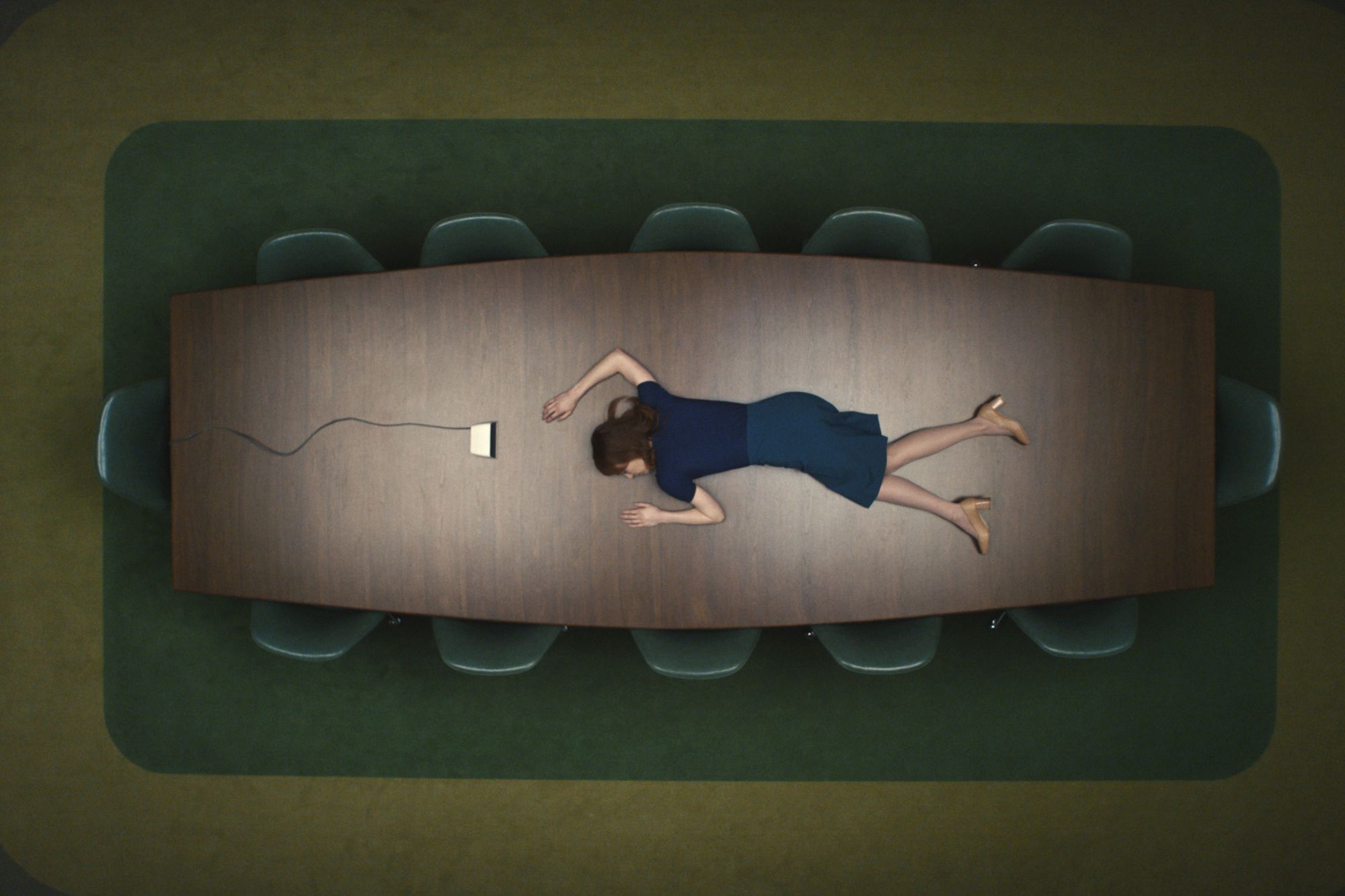
The last question is partially answered within Severance’s second episode as its workers are treated to a limp ‘melon’ party in their claustrophobic cubicles- proving that Ben Stiller’s comedic imprint remains intact, albeit this time in a meaner strain. And yet, the “outies” lives appear to be simply another form of misery as Severance derides the hollowness of the modern middle-class showcasing dinner parties without food, self-help books written by the clueless, and birth cabins covered in kelp.
Although it would be easy to dismiss this concept as an overwrought Black Mirror episode stretched out past its best, the series’ creators impressively develop and build up its world. Part-thriller, the series unfurls a good old-fashioned mystery of who and why this procedure was created. It concocts a bizarre world of futuristic technology and retro offices straight out of a mid-century magazine.
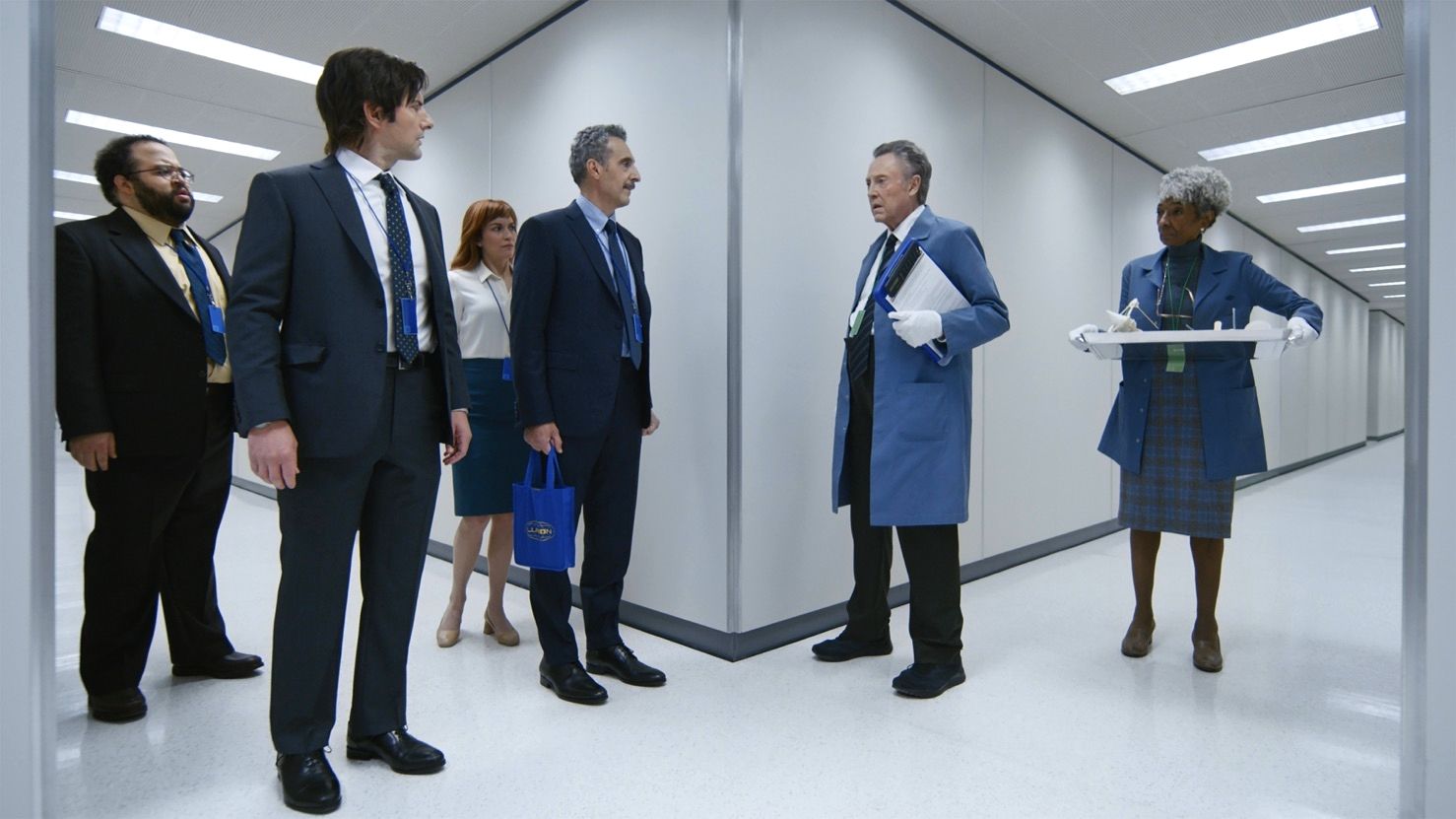
We inhabit disorientating maze-like corridors bringing the ‘rat-race’ to life. And as workers investigate their company, Lumon, with its quasi-religious culture and panoptic surveillance, Severance’s tension escalates to an almost unbearable and indeed unmissable point.
“What if you kill someone in there?” one character asks Mark. This is an excellent example of the series intersecting between our world and theirs, as we too are asked to consider the invisible implications of our everyday job. Severance exposes the dark underbelly of capitalism and the parts of our world that we attempt to erase from our memories.
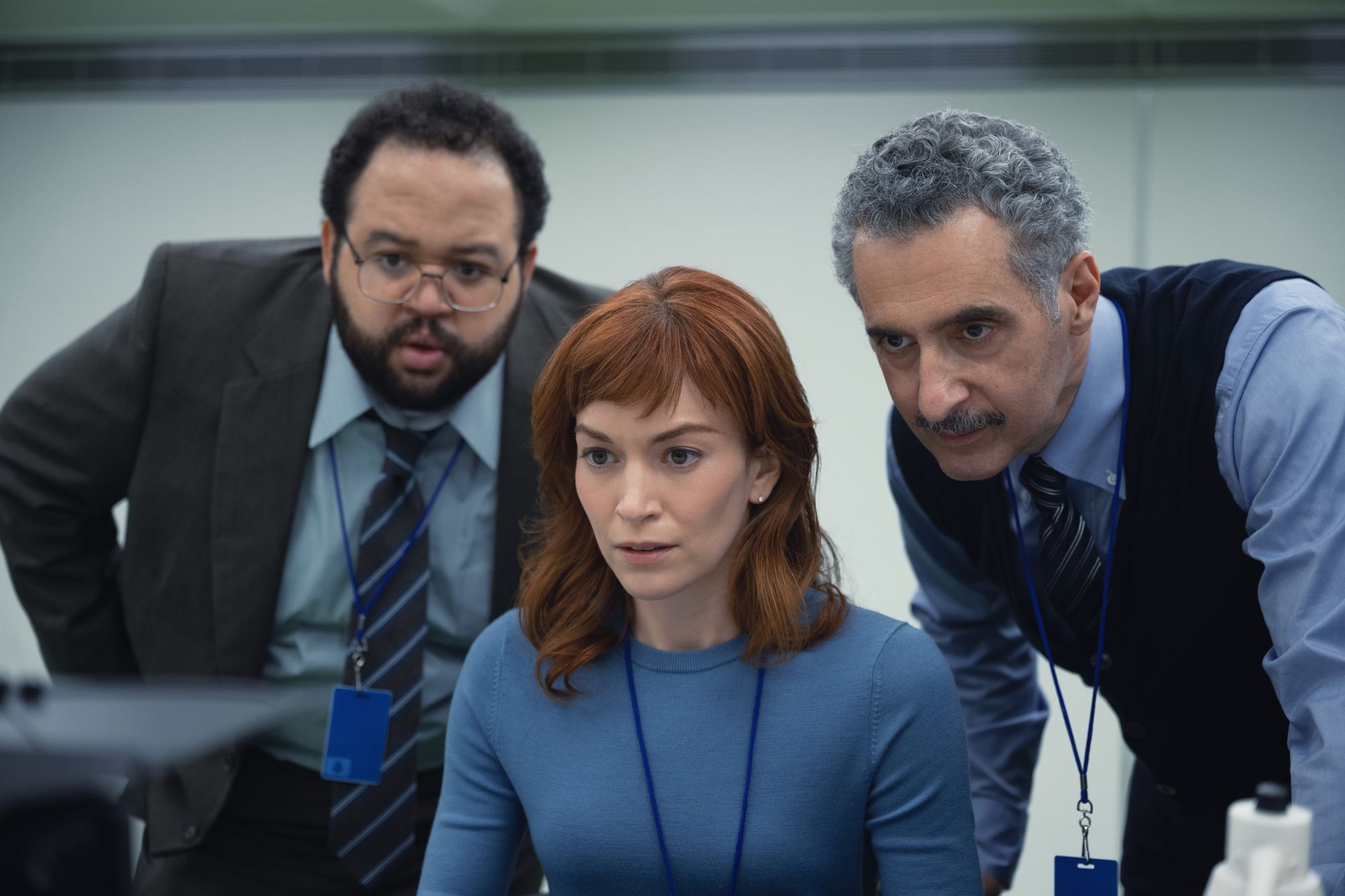
It's difficult enough to create a series that feels startling original and incredibly compact, let alone create one which resonates with modern anxieties about corporate ethics. Yet, Severance achieves this so impressively that you have to wonder if its creators have, too, been severed.
Featured Image: IMDB
Will you be tuning in to watch Apple's latest show Severance?

